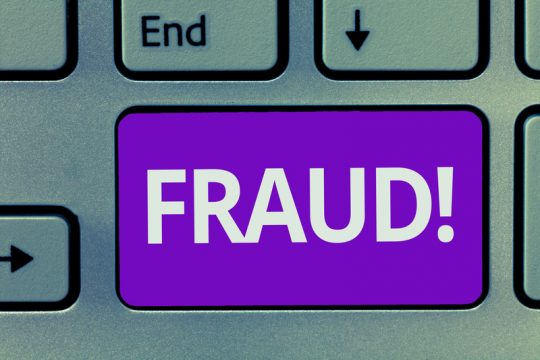
In the smokey haze of the pandemic, we see a landscape dotted with dishonesty admid the many heroic instances of personal bravery. That’s unfortunate (a massive understatement), but it says something about the criminal element that feeds on unsuspecting and vulnerable folks struggling to navigate the social upheaval brought about by COVID-19.
These faceless keyboard bandits and emboldened imposters are creative (that’s not meant as a complement) and are preying on the fear and confusion brought about by the sudden change in day-to-day living and the uncertainty of what the months ahead will be like. And they are aggressive…by mid-April, the Federal Trade Commission reports that well over 18,000 fraud reports related to COVID-19 are now on record, with a loss of more than $13 million suffered by the victims.
While we hear trillion-dollar discussions these days, $13 million might not sound like a lot, but it’s often coming from the pockets of folks most vulnerable and least able to afford the loss. For example, analysis by the FTC’s Consumer Sentinel Network reports that 33% of fraud victims ages 20-29—often folks struggling to raise families—reported losing money to fraud, compared to 13% of those aged 70-79. But the average dollar loss reported by the younger grouping pales in comparison to the loss reported by older victims—victims in the 70s and 80s, for example, reporting an average of roughly two to four times the amount lost by younger victims. The similarity, oc course, that this age grouping is also often equally unble to afford the loss.
So, whether it’s at the local, state, or federal level, the problem continues to get attention—lately, an increasing amount of attention as the economic impact/stimulus payments emerge as a prime target for thieves. This attention takes the form of a wide variety of warning-type alerts, like this warning from the FBI titled “Online Extortion scams increasing during the COVID-19 crisis,” which you can access here. In this advisory, the agency notes “… an increase in reports of online extortion scams during the current ‘stay-at-home’ orders …” and covers the common denominators that exist among many scam variations. The warning also sets forth the steps folks can take to protect themselves, and explains actions that should be taken through the Internet Crime Complaint Center (IC3) in the event you are victimized by any scammers.
And here’s another source of valuable information from Commissioner Nicole “Niki” Fried at the Florida Department of Agriculture and Consumer Services. In a consumer alert issued earlier this week, the Commissioner covers the topic “How to Spot, Avoid, and Report Coronavirus Scams,” categorizing the main types of threats and the precautionary steps to take to keep you and your family safe. You can access the alert here…
Subscribe
Sign Up for Our E-Newsletter!
Stay up-to-date on all of the topics you care about by subscribing to our quarterly newsletter emailed directly to your inbox!
SubscribeSubscribe
Sign Up for Our E-Newsletter!
Stay up-to-date on all of the topics you care about by subscribing to our quarterly newsletter emailed directly to your inbox!
Subscribe